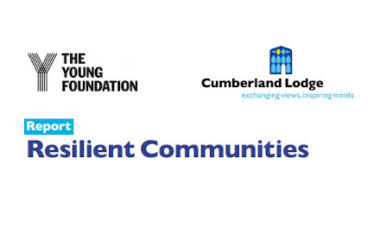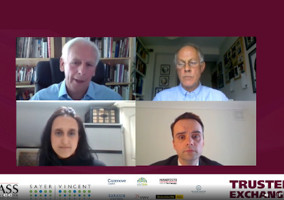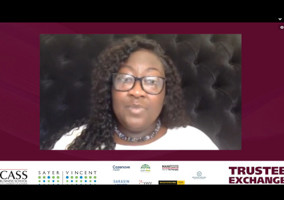Charities and other organisations that are publicly funded should be inspected to make sure they are not perpetuating structural racism, according to a new report.
The recommendation is one of 24 outlined in Resilient Communities by Cumberland Lodge in partnership with the Young Foundation. The report was authored by Sinéad Fitzsimons, a research officer in education and development at Cambridge Assessment, which is a department of the University of Cambridge.
It says that community resilience has been tested in recent years, and sought to identify ways that this can be improved.
Recommendations are based on a review of available literature, case studies, and discussions with experts at a conference that took place in February and a virtual meeting in May.
The report notes: “The anti-racism protests have also shown community strengths and weaknesses. For example, the number of anti-racism protests across the UK has illustrated a strong sense of solidarity in many communities.
“However, the movement has also brought increased attention to the systemic anti-Black racism that exists in the UK, which proliferates into all areas of society, including community structures.”
It recommends: “Public institutions and publicly-funded third sector organisations should be required to undergo an ‘anti-racism inspection’ of their daily practices, work structures, services, policies, hiring and promotions.”
According to the report, this could be done with an external specialist chosen from a list provided by the government’s Race Disparity Unit.
“As with an OFSTED (Office for Standards in Education, Children’s Services and Skills) inspection, the process should follow a clear framework, and result in a rating as well as recommended steps for improvement. Results should be published, and appropriate actions taken, to ensure that all publicly funded bodies and organisations are at a level of ‘good’ or ‘outstanding’,” it suggests.
The report also says there must be a “proactive” approach to raising the profile of voices from Black, Asian and other minority ethnic communities
Minimum number of charities ‘on each high street’
The report says community groups need more spaces and visibility, and calls for local authorities to be “stripped of the ability to sell or repurpose community assets – such as public and communal spaces” without community consultation.
It also suggests: “The government should commit to introducing a minimum threshold of voluntary community and social enterprises (VCSEs) on each high street.
“Financial support or business rates incentives should be introduced to encourage VCSE occupancy. High street occupancy will assist these organisations to thrive and increase their visibility to the community.”
Other recommendations
The report calls on Ministry of Housing, Communities and Local Government to lead and publish a clear mapping of the current decision-making processes related to local infrastructure.
It also urges the government to provide more funding and support to small charities and community organisations to help them survive the Covid-19 pandemic.
“Funding should prioritise areas in which poverty and inequality are entrenched, and should focus on supporting community-based, mission-driven charities,” it says.
It further suggests improving access to broadband and making leadership development opportunities more widely available.
Related articles












